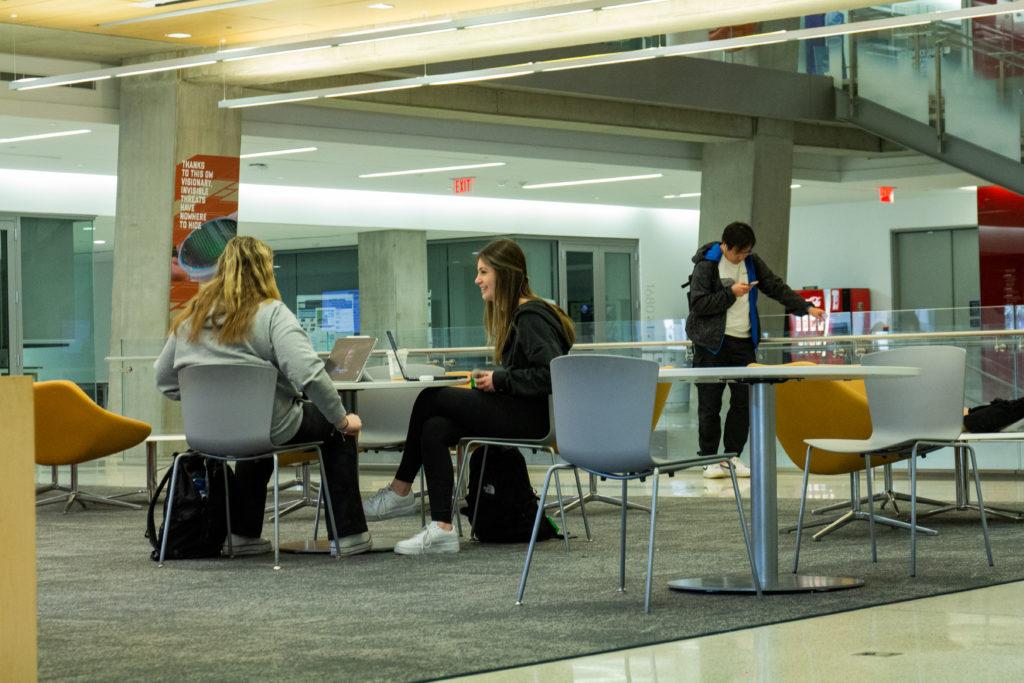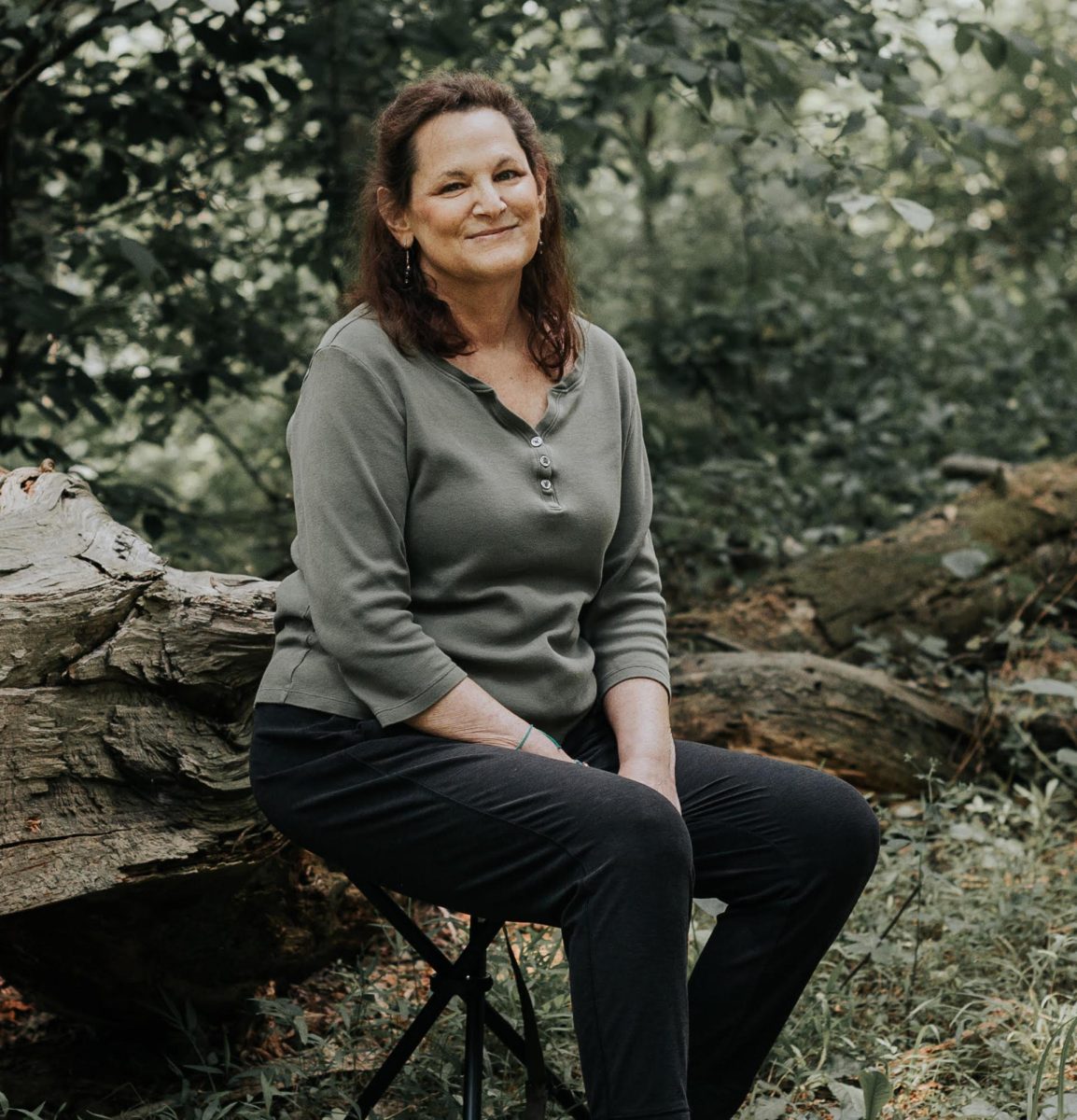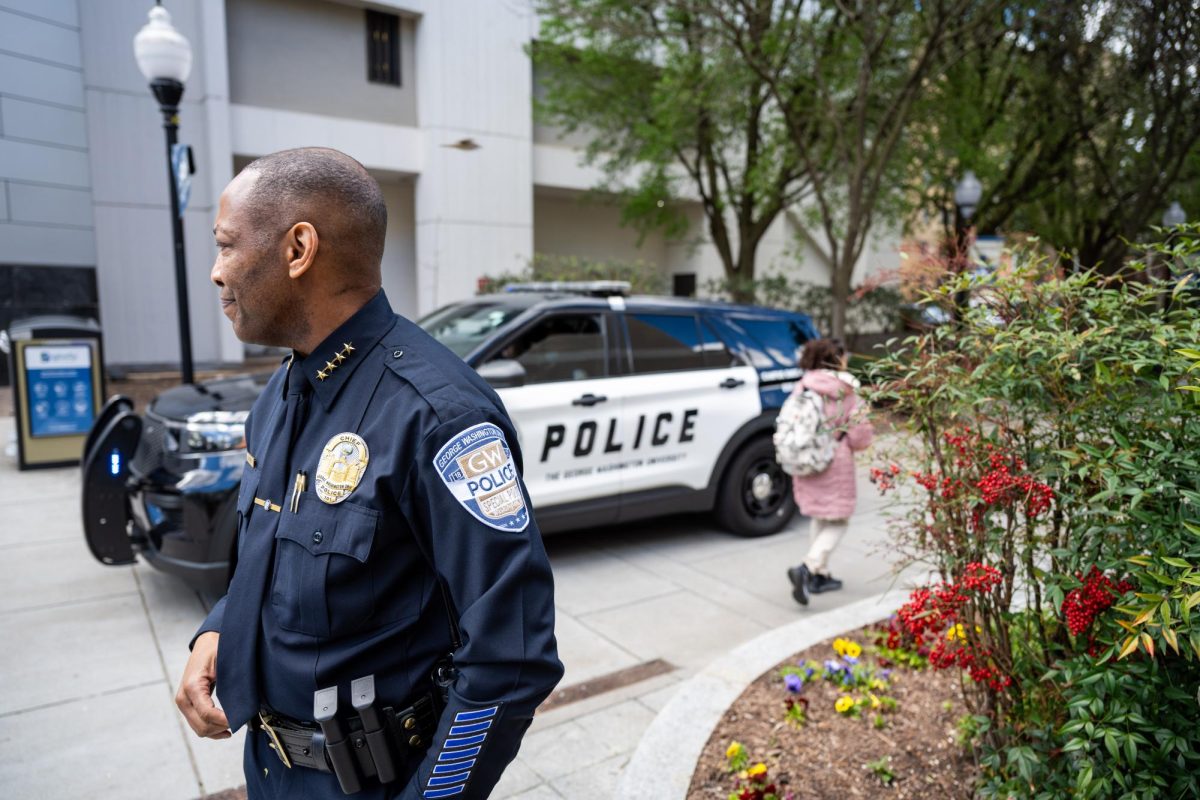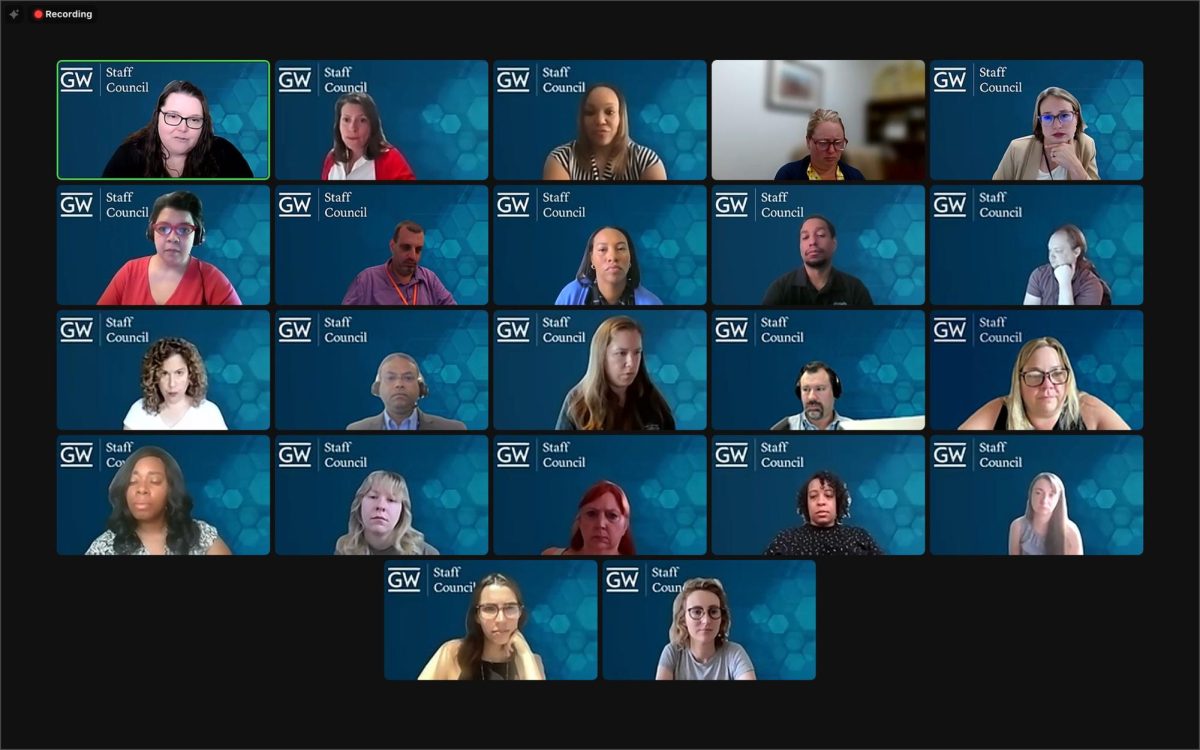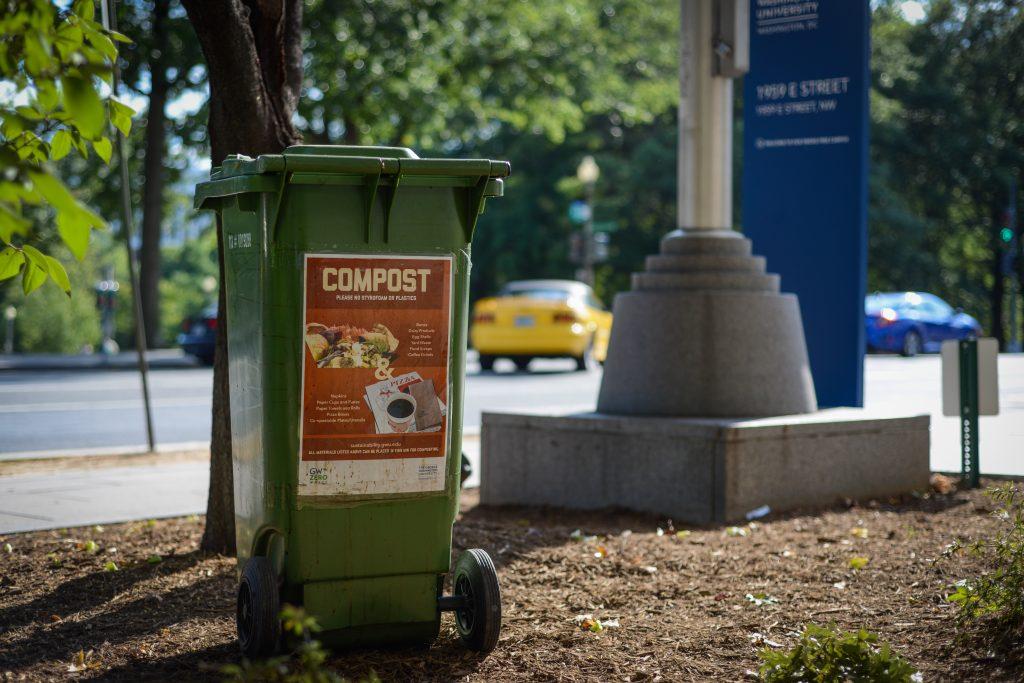Faculty and community members said the return of an old academic program will redefine the idea of a typical GW student.
The Course Audit Program, which allows alumni and senior residents who live near the Foggy Bottom and Mount Vernon campuses to take courses at the University, returned this fall after officials paused the program for three years during the pandemic. Community members and faculty said the presence of alumni and community members in GW courses will diversify the range of knowledge brought to the classroom and broaden educational opportunities for “lifetime learners.”
“They’re not interested in grades and what’s on the test,” said Catherine Forster, a professor emerita of biology who taught students in the Course Audit Program prior to its hiatus. “What they’re interested in is the subject and learning and understanding.”
Prospective course auditors can attend lectures and laboratories and must be an alum, a Foggy Bottom resident in the 20037 or 20006 zip codes who is at least 60 years old, or a resident in the area surrounding the Mount Vernon campus who is at least 60 years old, according to the course audit website. The course audit website states that auditors must pay $100 per course, associated fees for labs, music and art courses and obtain a GWorld card that costs $10 for alumni and $15 for community members.
Auditors may register from a selection of more than 300 classes, which span from Evolution of the Human Brain to D.C. in the History of Punk to Nuclear Weapons. In 2010, 216 alumni and community members audited courses at the University.
Forster said prior to the Course Audit Program’s pandemic pause, alumni and community members sat in her historical geology course, including a lawyer who asked what the course content would mean in a law context. She said auditors use the program to “delve” deeper into topics like geology and were not afraid to ask questions during lectures or approach the professor to talk after class, unlike most younger students.
She said young students can benefit from hearing auditors’ “lifetime experiences” during class discussions, which they might not be exposed to otherwise.
“I’m really happy that GW is starting this program up again,” Forster said.
John George — the president of the Foggy Bottom Association, an organization of Foggy Bottom residents that promotes community involvement — said while residents engage with GW through events like spring cleanups and a holiday party in December, the Course Audit Program will strengthen Foggy Bottom residents’ relationship with the University with additional academic participation opportunities.
“It puts the University in a positive light, where it’s benefiting the community and not kind of just being in the community,” George said.
He said he advocated for the return of course auditing during the program’s pandemic pause to Interim University President Mark Wrighton and Director of Community Relations Kevin Days because nearby universities like Georgetown University continued their course audit programs virtually throughout the pandemic. He said he continued to “beat the drum” for restarting the program after the University “gradually” resumed pre-pandemic community benefits like access to the Lerner Health and Wellness Center returned last January.
Last January, officials revived the Friends of GW program, a community benefits program that gives nearby residents access to Gelman and Eckles libraries, the Mount Vernon Express, brunch in the Eatery at Pelham Commons, sporting events at the Smith Center and the Vern and meeting spaces on campus. They declined to comment on when the Course Audit Program might return last January after suspending the program in March 2020.
He said he and members of the FBA advised officials during the three-year pause of the program to expand their options to prove Foggy Bottom residency, typically through a D.C. driver’s license, to allow signed letters from apartment building or condominium managers so more individuals could take advantage of community benefits.
“We were just really pleased that they came and are available, and then again in a timely manner, so that people could take advantage of them for this semester and forward,” George said.
Susan Johnston, a professorial lecturer of anthropology, said auditors took her Religion, Myth and Magic course prior to the Course Audit Program’s pandemic pause. She said the only drawback, though not an issue, of the Course Audit Program is that auditors do not have access to course readings on Blackboard, so professors have to email copies of the readings to auditors.
She said most students who take her courses are around the same age and that auditors diversified the knowledge on culture and religion, which are topics discussed in the course, brought to the classroom.
“I’m not gonna say all college students are the same but 90 percent of them are in the same age bracket, most of them are from this country,” Johnston said. “I like having a lot of different perspectives in that class.”




